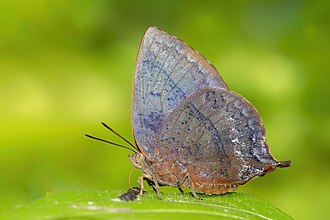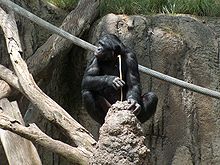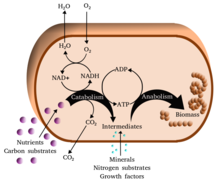Nutrition
- Afrikaans
- العربية
- Asturianu
- Avañe'ẽ
- বাংলা
- Basa Banyumasan
- Bikol Central
- Bosanski
- Català
- Čeština
- Dansk
- Deutsch
- डोटेली
- Eesti
- Ελληνικά
- Español
- Euskara
- فارسی
- Français
- Furlan
- Galego
- Hausa
- Հայերեն
- हिन्दी
- Hrvatski
- Bahasa Indonesia
- Íslenska
- Italiano
- עברית
- Jawa
- ಕನ್ನಡ
- Kiswahili
- Kriyòl gwiyannen
- Latviešu
- Lëtzebuergesch
- Македонски
- മലയാളം
- မြန်မာဘာသာ
- 日本語
- Norsk bokmål
- Oʻzbekcha / ўзбекча
- پنجابی
- Patois
- Português
- Runa Simi
- Русский
- Sakizaya
- Simple English
- کوردی
- Српски / srpski
- Srpskohrvatski / српскохрватски
- Sunda
- Suomi
- Tagalog
- தமிழ்
- ไทย
- Türkçe
- اردو
- Tiếng Việt
- Winaray
- 粵語
- 中文

Nutrition is the biochemical and physiological process by which an organism uses food to support its life. It provides organisms with nutrients, which can be metabolized to create energy and chemical structures. Failure to obtain sufficient nutrients causes malnutrition. Nutritional science is the study of nutrition, though it typically emphasizes human nutrition.
The type of organism determines what nutrients it needs and how it obtains them. Organisms obtain nutrients by consuming organic matter, consuming inorganic matter, absorbing light, or some combination of these. Some can produce nutrients internally by consuming basic elements, while some must consume other organisms to obtain pre-existing nutrients. All forms of life require carbon, energy, and water as well as various other molecules. Animals require complex nutrients such as carbohydrates, lipids, and proteins, obtaining them by consuming other organisms. Humans have developed agriculture and cooking to replace foraging and advance human nutrition. Plants acquire nutrients through the soil and the atmosphere. Fungi absorb nutrients around them by breaking them down and absorbing them through the mycelium.
History
Scientific analysis of food and nutrients began during the chemical revolution in the late 18th century. Chemists in the 18th and 19th centuries experimented with different elements and food sources to develop theories of nutrition.[1] Modern nutrition science began in the 1910s as individual micronutrients began to be identified. The first vitamin to be chemically identified was thiamine in 1926, and vitamin C was identified as a protection against scurvy in 1932.[2] The role of vitamins in nutrition was studied in the following decades. The first recommended dietary allowances for humans were developed to address fears of disease caused by food deficiencies during the Great Depression and the Second World War.[3] Due to its importance in human health, the study of nutrition has heavily emphasized human nutrition and agriculture, while ecology is a secondary concern.[4]
Nutrients
Nutrients are substances that provide energy and physical components to the organism, allowing it to survive, grow, and reproduce. Nutrients can be basic elements or complex
Nutrients are absorbed by the cells and used in metabolic biochemical reactions. These include fueling reactions that create precursor metabolites and energy, biosynthetic reactions that convert precursor metabolites into building block molecules, polymerizations that combine these molecules into macromolecule polymers, and assembly reactions that use these polymers to construct cellular structures.[5]
Nutritional groups
Organisms can be classified by how they obtain carbon and energy.
Diet
Nutrient cycle
Biogeochemical cycles that are performed by living organisms and natural processes are water, carbon, nitrogen, phosphorus, and sulfur cycles.[13] Nutrient cycles allow these essential elements to return back into the environment after being absorbed or consumed. Without proper nutrient cycling, there would be risk of change in oxygen levels, climate, and ecosystem function.
Foraging

Foraging is the process of seeking out nutrients in the environment. It may also be defined to include the subsequent use of the resources. Some organisms, such as animals and bacteria, can navigate to find nutrients, while others, such as plants and fungi, extend outward to find nutrients. Foraging may be random, in which the organism seeks nutrients without method, or it may be systematic, in which the organism can go directly to a food source.[14] Organisms are able to detect nutrients through taste or other forms of nutrient sensing, allowing them to regulate nutrient intake.[15] Optimal foraging theory is a model that explains foraging behavior as a cost–benefit analysis in which an animal must maximize the gain of nutrients while minimizing the amount of time and energy spent foraging. It was created to analyze the foraging habits of animals, but it can also be extended to other organisms.[16] Some organisms are specialists that are adapted to forage for a single food source, while others are generalists that can consume a variety of food sources.[17]
Nutrient deficiency
Nutrient deficiencies, known as malnutrition, occur when an organism does not have the nutrients that it needs. This may be caused by suddenly losing nutrients or the inability to absorb proper nutrients. Not only is malnutrition the result of a lack of necessary nutrients, but it can also be a result of other illnesses and health conditions. When this occurs, an organism will adapt by reducing energy consumption and expenditure to prolong the use of stored nutrients. It will use stored energy reserves until they are depleted, and it will then break down its own body mass for additional energy.[18]
A balanced diet includes appropriate amounts of all essential and nonessential nutrients. These can vary by age, weight, sex, physical activity levels, and more. A lack of just one essential nutrient can cause bodily harm, just as an overabundance can cause toxicity. The Daily Reference Values keep the majority of people from nutrient deficiencies. DRVs are not recommendations but a combination of nutrient references to educate professionals and policymakers on what the maximum and minimum nutrient intakes are for the average person. Food labels also use DRVs as a reference to create safe nutritional guidelines for the average healthy person.[citation needed]
In organisms
Animal

Animals are heterotrophs that consume other organisms to obtain nutrients. Herbivores are animals that eat plants, carnivores are animals that eat other animals, and omnivores are animals that eat both plants and other animals.[19] Many herbivores rely on bacterial fermentation to create digestible nutrients from indigestible plant cellulose, while obligate carnivores must eat animal meats to obtain certain vitamins or nutrients their bodies cannot otherwise synthesize. Animals generally have a higher requirement of energy in comparison to plants.[20] The macronutrients essential to animal life are carbohydrates, amino acids, and fatty acids.[6][21]
All macronutrients except water are required by the body for energy, however, this is not their sole physiological function. The energy provided by macronutrients in food is measured in kilocalories, usually called Calories, where 1 Calorie is the amount of energy required to raise 1 kilogram of water by 1 degree Celsius.[22]
Carbohydrates are molecules that store significant amounts of energy. Animals digest and metabolize carbohydrates to obtain this energy. Carbohydrates are typically synthesized by plants during metabolism, and animals have to obtain most carbohydrates from nature, as they have only a limited ability to generate them. They include sugars, oligosaccharides, and polysaccharides. Glucose is the simplest form of carbohydrate.[23] Carbohydrates are broken down to produce glucose and short-chain fatty acids, and they are the most abundant nutrients for herbivorous land animals.[24]
Lipids provide animals with fats and oils. They are not soluble in water, and they can store energy for an extended period of time. They can be obtained from many different plant and animal sources. Most dietary lipids are triglycerides, composed of glycerol and fatty acids. Phospholipids and sterols are found in smaller amounts.[25] An animal's body will reduce the amount of fatty acids it produces as dietary fat intake increases, while it increases the amount of fatty acids it produces as carbohydrate intake increases.[26]
Protein consumed by animals is broken down to amino acids, which would be later used to synthesize new proteins. Protein is used to form cellular structures, fluids,
Much of
Human
Early human nutrition consisted of foraging for nutrients, like other animals, but it diverged at the beginning of the
Humans are omnivores that eat a variety of foods. Cultivation of cereals and production of bread has made up a key component of human nutrition since the beginning of agriculture. Early humans hunted animals for meat, and modern humans domesticate animals to consume their meat and eggs. The development of animal husbandry has also allowed humans in some cultures to consume the milk of other animals and process it into foods such as cheese. Other foods eaten by humans include nuts, seeds, fruits, and vegetables. Access to domesticated animals as well as vegetable oils has caused a significant increase in human intake of fats and oils. Humans have developed advanced methods of food processing that prevent contamination of pathogenic microorganisms and simplify the production of food. These include drying, freezing, heating, milling, pressing, packaging, refrigeration, and irradiation. Most cultures add herbs and spices to foods before eating to add flavor, though most do not significantly affect nutrition. Other additives are also used to improve the safety, quality, flavor, and nutritional content of food.[33]
Humans obtain most carbohydrates as starch from cereals, though sugar has grown in importance.[23] Lipids can be found in animal fat, butterfat, vegetable oil, and leaf vegetables, and they are also used to increase flavor in foods.[25] Protein can be found in virtually all foods, as it makes up cellular material, though certain methods of food processing may reduce the amount of protein in a food.[34] Humans can also obtain energy from ethanol, which is both a food and a drug, but it provides relatively few essential nutrients and is associated with nutritional deficiencies and other health risks.[35]
In humans, poor nutrition can cause deficiency-related diseases, such as
Domesticated animal
In
Plant

Most plants obtain nutrients through inorganic substances
Plants uptake essential elements from the soil through their
As these nutrients do not provide the plant with energy, they must obtain energy by other means.
Fungus
Fungi are chemoheterotrophs that consume external matter for energy. Most fungi absorb matter through the root-like mycelium, which grows through the organism's source of nutrients and can extend indefinitely. The fungus excretes extracellular enzymes to break down surrounding matter and then absorbs the nutrients through the cell wall. Fungi can be parasitic, saprophytic, or symbiotic. Parasitic fungi attach and feed on living hosts, such as animals, plants, or other fungi. Saprophytic fungi feed on dead and decomposing organisms. Symbiotic fungi grow around other organisms and exchange nutrients with them.[48]
Protist
Protists include all eukaryotes that are not animals, plants, or fungi, resulting in great diversity between them. Algae are photosynthetic protists that can produce energy from light. Several types of protists use mycelium similar to those of fungi. Protozoa are heterotrophic protists, and different protozoa seek nutrients in different ways. Flagellate protozoa use a flagellum to assist in hunting for food, and some protozoa travel via infectious spores to act as parasites.[49] Many protists are mixotrophic, having both phototrophic and heterotrophic characteristics. Mixotrophic protists will typically depend on one source of nutrients while using the other as a supplemental source or a temporary alternative when its primary source is unavailable.[50]
Prokaryote

Prokaryotes, including bacteria and archaea, vary greatly in how they obtain nutrients across nutritional groups. Prokaryotes can only transport soluble compounds across their cell envelopes, but they can break down chemical components around them. Some lithotrophic prokaryotes are extremophiles that can survive in nutrient-deprived environments by breaking down inorganic matter.[51] Phototrophic prokaryotes, such as cyanobacteria and Chloroflexia, can engage in photosynthesis to obtain energy from sunlight. This is common among bacteria that form in mats atop geothermal springs. Phototrophic prokaryotes typically obtain carbon from assimilating carbon dioxide through the Calvin cycle.[52]
Some prokaryotes, such as Bdellovibrio and Ensifer, are predatory and feed on other single-celled organisms. Predatory prokaryotes seek out other organisms through chemotaxis or random collision, merge with the organism, degrade it, and absorb the released nutrients. Predatory strategies of prokaryotes include attaching to the outer surface of the organism and degrading it externally, entering the cytoplasm of the organism, or by entering the periplasmic space of the organism. Groups of predatory prokaryotes may forgo attachment by collectively producing hydrolytic enzymes.[53]
See also
- Liebig's law of the minimum – Growth is limited by the scarcest resource
- Nutrient density – the proportion of any array of a single nutrient or nutritional factor, or of numerous nutrients in foods, often ordered by different scalar indicesPages displaying wikidata descriptions as a fallback
- Nutrition analysis
- Resource (biology) – substance or object in the environment required by an organism for normal growth, maintenance, and reproductionPages displaying wikidata descriptions as a fallback
- Substrate (biology) – Surface on which a plant or animal lives
- Milan Charter 2015 Charter on Nutrition
References
- from the original on 6 August 2022. Retrieved 6 August 2022.
- S2CID 205061112.
- from the original on 6 August 2022. Retrieved 6 August 2022.
- ^ Simpson & Raubenheimer 2012, p. 2.
- ^ a b Andrews 2017, pp. 70–72.
- ^ a b Wu 2017, pp. 2–4.
- ^ Andrews 2017, pp. 72–79.
- ^ Andrews 2017, p. 93.
- ^ "Diet". National Geographic. Retrieved 8 August 2022.
- ^ "Benefits of Healthy Eating". Centers for Disease Control and Prevention. 16 May 2021. Retrieved 17 May 2023.
- ^ "Religion and dietary choices". Independent Nurse. 19 September 2016. Retrieved 17 May 2023.
- ^ ISBN 978-0-19-179315-8. (subscription required)
- ^ "Intro to biogeochemical cycles (article)". Khan Academy. Retrieved 2 November 2022.
- ^ Andrews 2017, pp. 83–85.
- ^ Simpson & Raubenheimer 2012, p. 36.
- ^ Andrews 2017, p. 16.
- ^ Andrews 2017, p. 98.
- from the original on 8 August 2022. Retrieved 7 August 2022.
- ^ Wu 2017, p. 1.
- ^ National Geographic Society (21 January 2011). "Herbivore". National Geographic Society. Archived from the original on 25 February 2017. Retrieved 1 May 2017.
- ^ "Nutrition: What Plants and Animals Need to Survive | Organismal Biology". organismalbio.biosci.gatech.edu. Retrieved 2 November 2022.
- ^ "4.2: Nutrients". Biology LibreTexts. 21 December 2018. Retrieved 2 November 2022.
- ^ a b Mann & Truswell 2012, pp. 21–26.
- ^ Wu 2017, pp. 193–194.
- ^ a b Mann & Truswell 2012, pp. 49–55.
- ^ Wu 2017, p. 271.
- ^ Mann & Truswell 2012, pp. 70–73.
- PMID 10592255. Archived from the original(PDF) on 1 June 2011.
- ^ Simpson & Raubenheimer 2012, pp. 3–4.
- ^ Simpson & Raubenheimer 2012, pp. 39–41.
- S2CID 229617949.
- ^ Mann & Truswell 2012, p. 1.
- ^ Mann & Truswell 2012, pp. 409–437.
- ^ Mann & Truswell 2012, p. 86.
- ^ Mann & Truswell 2012, pp. 109–120.
- ^ ISBN 978-1-133-58752-1.
- ^ "Defining Adult Overweight and Obesity". Centers for Disease Control and Prevention. 7 June 2021. Archived from the original on 28 September 2021. Retrieved 22 September 2021.
- ^ "Metabolic syndrome – PubMed Health". National Center for Biotechnology Information. Archived from the original on 5 February 2011. Retrieved 17 October 2011.
- ^ "Omega-3 fatty acids". Umm.edu. 5 October 2011. Archived from the original on 9 July 2008. Retrieved 17 October 2011.
- (PDF) from the original on 8 August 2022. Retrieved 22 September 2021.
- ^ "Diabetes Diet and Food Tips: Eating to Prevent and Control Diabetes". Helpguide.org. Archived from the original on 20 May 2011. Retrieved 17 October 2011.
- US National Institutes of Health. Archived from the originalon 6 July 2011. Retrieved 17 August 2021.
- ISBN 978-0-313-38527-8.
- ^ Mengel et al. 2001, pp. 1–3.
- ^ Mengel et al. 2001, pp. 111–135.
- ^ Lindemann, W.C.; Glover, C.R. (2003). "Nitrogen Fixation by Legumes". New Mexico State University. Archived from the original on 17 May 2013.
- ^ Mengel et al. 2001, pp. 136–137.
- ISBN 978-81-322-2286-6.
- S2CID 43539893.
- from the original on 21 February 2022. Retrieved 8 August 2022.
- ISBN 9780444527486.
- ISBN 978-0-387-25492-0.
- from the original on 3 August 2022. Retrieved 6 August 2022.
Bibliography
- Andrews, John H. (2017). Comparative Ecology of Microorganisms and Macroorganisms (2nd ed.). New York: ISBN 978-1-4939-6897-8.
- Mann, Jim; Truswell, A. Stewart, eds. (2012). Essentials of Human Nutrition (4th ed.). Oxford: ISBN 978-0-19-956634-1.
- Mengel, Konrad; Kirkby, Ernest A.; Kosegarten, Harald; Appel, Thomas, eds. (2001). Principles of Plant Nutrition (5th ed.). New York: S2CID 9332099.
- Simpson, Stephen J.; Raubenheimer, David (2012). The Nature of Nutrition: A Unifying Framework from Animal Adaptation to Human Obesity. Princeton: ISBN 978-1-4008-4280-3.
- Wu, Guoyao (2017). Principles of Animal Nutrition. Boca Raton: ISBN 978-1-351-64637-6.
External links
| International | |
|---|---|
| National | |
| Other | |

